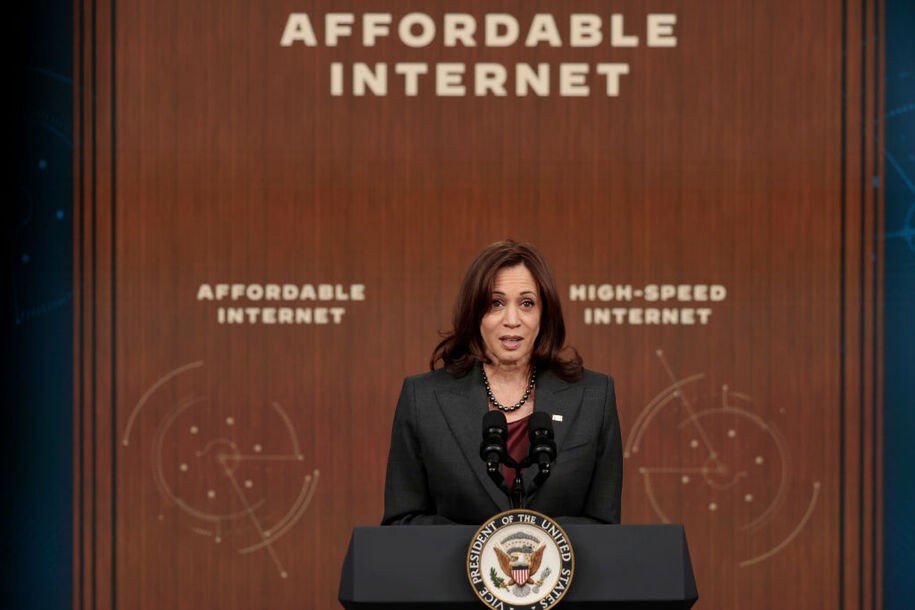There’s a growing heap of urgent issues for Congress to tackle early in the new year, with Republican dysfunction making all of it worse. The latest addition to the list: affordable internet for millions of Americans—many of them in Republican districts. The Affordable Connectivity Program is projected to run out of funding in April, and with it the broadband connections of 22 million or more households.
The ACP originated during the Trump administration, believe it or not, as part of pandemic relief programs. It provides a federal subsidy to low- and moderate-income families so they can get and stay online. Congress and President Joe Biden made the program permanent as part of the Infrastructure Investment and Jobs Act in 2021, but they didn’t create a permanent funding mechanism for it in that law. The initial $17.4 billion allocation and the $30-per-month subsidies (bumped up to $75 on tribal lands and in high-cost rural areas) that it funds is dwindling, and some Republicans don’t want to give Biden a win by continuing to fund it.
Nathan Kuenstler of Austin, Texas, is one of the people who could lose the subsidy.
“$30 makes a difference budgeting for anything,” Kuenstler told Politico. He’s a community college student and volunteer “ambassador” for the ACP, meaning he hands out fliers and speaks at public meetings about the program. “That gives me $30 more to spend on my groceries in a week—$30, I can get gas, I can get milk, 36 eggs, some cheese, tortillas.”
Rolanda Hayden in rural Brevard, North Carolina, also uses the subsidy and sings its praises. The 56-year-old used the internet connection it provided during the pandemic to get a degree in criminal justice, which in turn landed her a job at a local courthouse. She still qualifies for the subsidy, which helps her do her job now.
“Losing this program would be huge,” Hayden told Politico. “I would have to give up the internet.”
The program has a vast array of institutional supporters, from the AARP to the Hispanic Federation to the telecom industry, which has enjoyed getting all those new paying customers. Even the U.S. Cattlemen’s Association has weighed in, lobbying Congress for new funding.
In a letter to Congress last fall, they made the case for rural—aka red state—reliance on the program. Part of the problem is simple infrastructure, the association said, which is “toughest in hard-to-reach areas.” That difficulty “in turn causes high costs for internet on rural consumers,” which “the ACP has alleviated,” they wrote in the letter, along with Rural & Agriculture Council of America, the National Grange, and RuralRISE Tech.
That sounds an awful lot like the case rural Americans made for the Affordable Care Act, which brought health coverage and Medicaid eligibility to millions of people in far-flung communities and saved rural hospitals in states that accepted Medicaid expansion. But Republicans fought that, just like Republicans constantly fight the SNAP program and try to reduce food assistance even while the economic benefits to rural communities—which are even greater than to urban areas—are clear.
Once again, Republican lawmakers are lining up against the interests and opinions of their constituents on this issue. The program’s benefits are completely bipartisan. Republican congressional districts have received as much as Democratic districts, with $3.37 billion spent in GOP districts and $3.29 billion spent in Democratic ones. The program is popular with Republican voters, too, with 64% of Republicans approving of it along with 70% of independents and 95% of Democrats.
But continuing to fund the program might help Joe Biden in 2024, and the GOP doesn’t want that. Republican lawmakers don’t care if their constituents go hungry, have medical care, or are able to connect to the rest of the world through the internet.
Campaign Action

